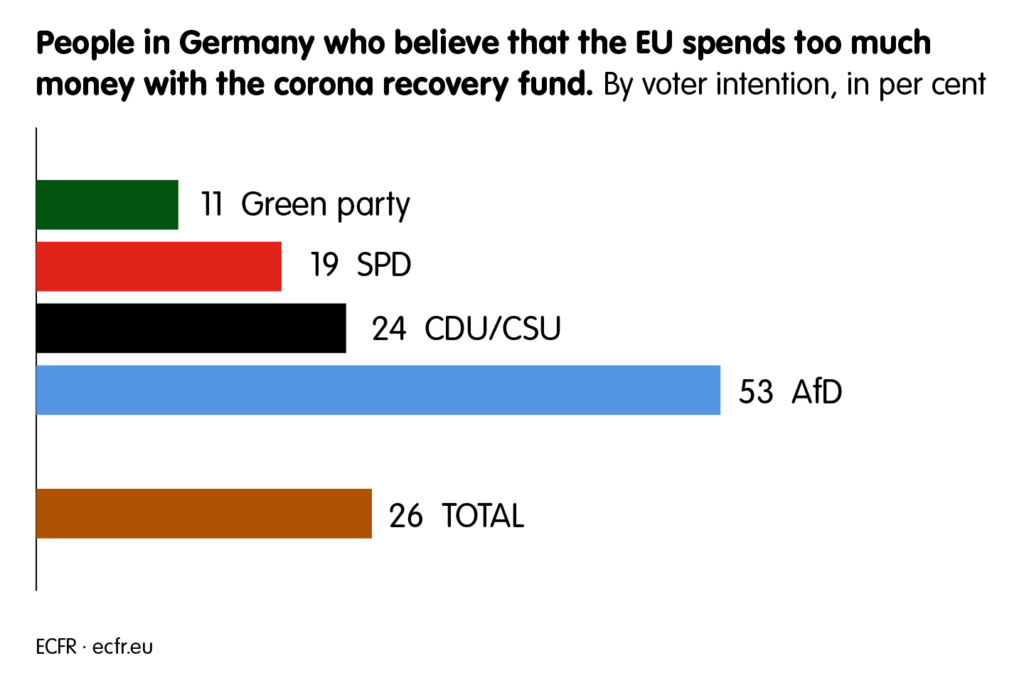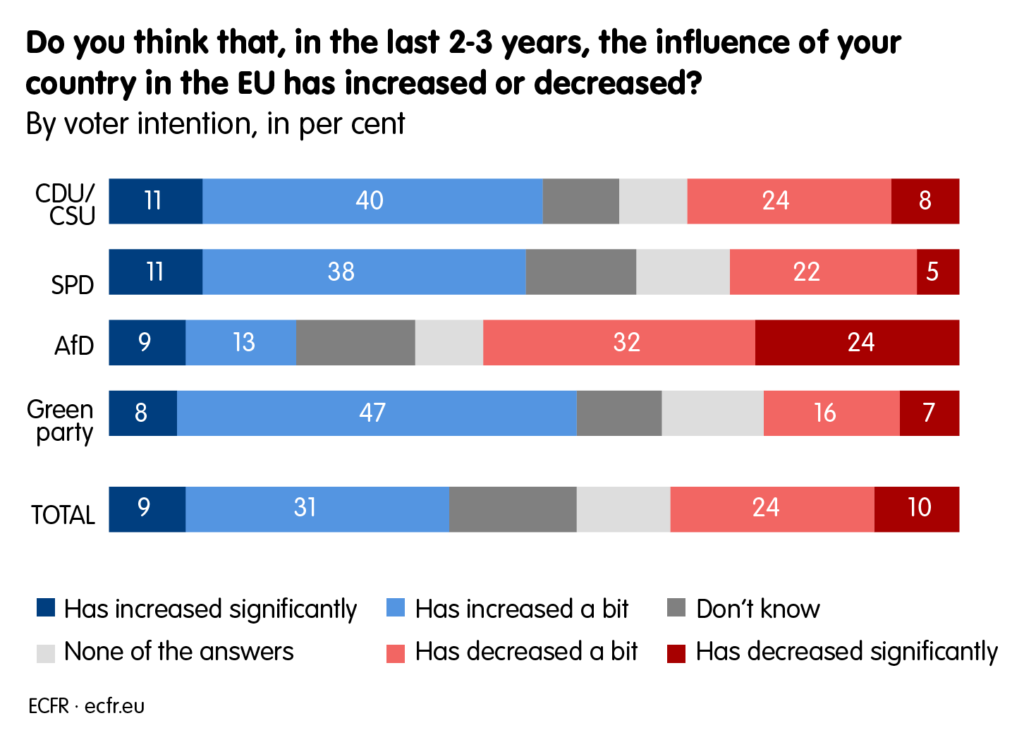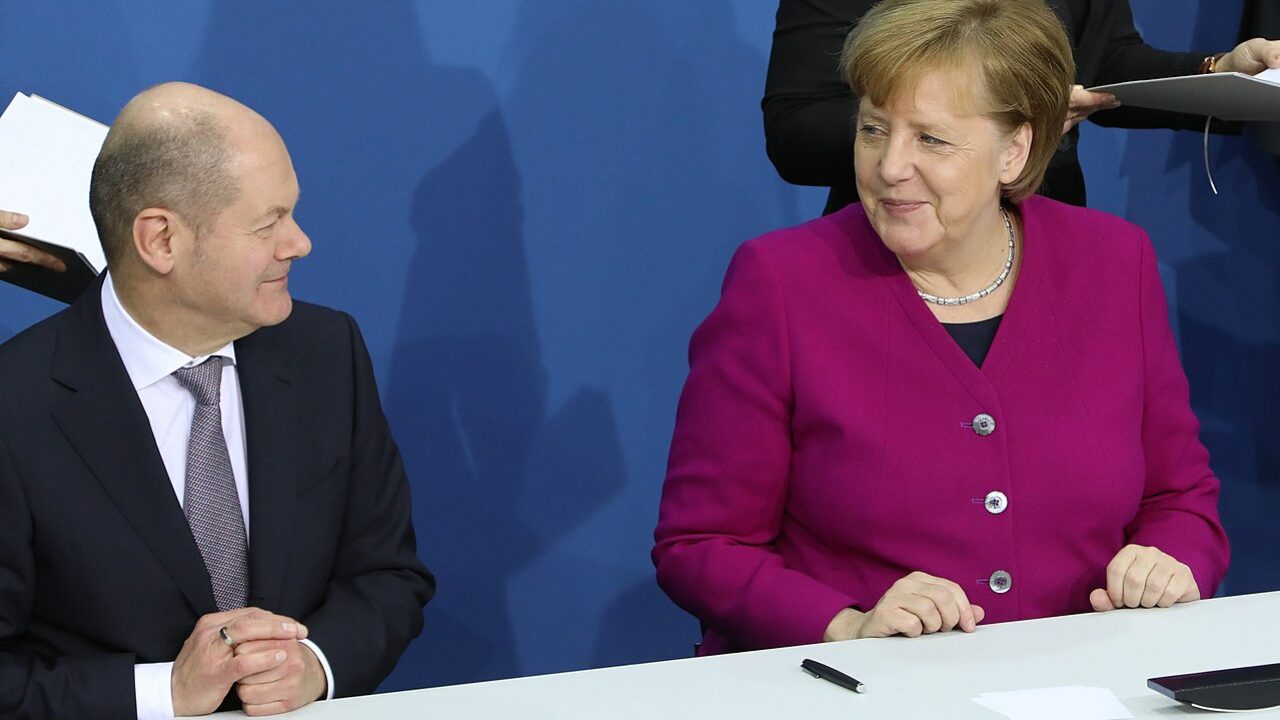How to spend it: Why Germany is saying goodbye to frugality
Germany, together with France, aims to play a decisive role in the reconstruction of the post-coronavirus world
2020 will probably go down in history as the year in which Berlin moved away from the controversial commitment to austerity it had held so dear since the euro crisis. In response to the coronavirus pandemic, Chancellor Angela Merkel – working alongside France’s president, Emmanuel Macron – not only advocated a larger EU budget but also launched a joint debt-financed recovery fund. Thus, Merkel has clearly distinguished Germany from the group of so-called frugal countries: Denmark, Finland, the Netherlands, Austria, and Sweden. As net contributors to the EU budget, these states were initially opposed to increasing the budget and non-repayable grants from the multibillion-euro coronavirus recovery fund.
Only a minority of respondents in Germany say that the European Union is spending too much money on the reconstruction fund.
One of the most interesting findings of a recent opinion poll commissioned by the European Council on Foreign Relations is that most Germans support Berlin’s position. Only a minority of respondents in Germany say that the European Union is spending too much money on the reconstruction fund. And, perhaps contrary to expectations, almost two-thirds of German respondents do not have a negative attitude towards the fund. In contrast, according to opinion polls, most Germans favoured a strict austerity policy during the euro crisis.

A new Eurobarometer survey confirms this finding: almost half of respondents in Germany believes that the EU should have greater financial means to overcome the consequences of the pandemic. This might be surprising given that Germany will be by far the largest net contributor to the recovery fund. According to media reports, the country is expected to contribute around €50 billion more to the fund than it will receive from it.
However, many people in Germany and other EU countries are concerned that these gigantic sums are being misspent or are seeping away into unknown channels. According to ECFR’s survey, although Germans want to show financial solidarity with other Europeans, almost 40 percent of them fear corruption and other financial waste in connection with the recovery fund. This is also the prevailing opinion in the other countries covered in the survey: the frugal five states, France, and Poland.
Specifically, they want European leaders to make spending on the recovery fund dependent on two areas that are central to the EU’s community of democratic values and the gigantic economic transformation set to take place in the coming decades. Only 17 percent of German respondents say that the EU is working in Germany’s interest when it comes to protecting democracy, human rights, and the rule of law, as well as addressing climate change.
The protection of the rule of law in Europe seems to be particularly relevant for respondents in the Eurobarometer survey discussed above: almost 80 percent of Germans say that member states should only receive EU funds if their governments adhere to democratic principles and the rule of law.
The fact that the EU found a compromise last week in its negotiations with Poland and Hungary on the EU budget and the rule of law mechanism linked to the coronavirus fund is helpful for all those who urgently need assistance from the fund. However, a closer look at the compromise suggests that this will let Hungary and Poland off the hook for violating the rule of law. The arrangement will probably weaken, and delay the implementation of, the rule-of-law conditionality linked to the fund. As such, the fund will probably do little to address the threat to democracy in Hungary and Poland.
In his announcement of the deal, the president of the European Council, Charles Michel, pointed out that the EU could now also tackle the green transition with the reconstruction fund. Many people in Germany and the EU apparently hope that this will happen. According to Eurobarometer, most respondents in Germany – as well as those in Austria and Denmark – say that climate change and the protection the environment should be a spending priority for the EU budget. Only healthcare and the economic recovery rank higher than climate change in the priorities of EU citizens. Accordingly, at a summit last week, European leaders stated their aim to ensure that, by 2030, the EU’s greenhouse gas emissions will have decreased by at least 55 percent from their level in 1990 – a goal proposed by the European Commission in September.

The reputation for frugality Germany built up in the euro crisis should change during the pandemic. Germans support the recovery fund so long as the money from it is spent properly. Germany, together with France, aims to play a decisive role in the reconstruction of the post-coronavirus world. And Germans are aware of the central role their country plays in the effort. This is reflected by the fact that, among all countries polled in ECFR’s survey, Germany is the only one in which a majority of people feel that their country’s influence in the EU has increased.
In the pandemic and its aftermath, the German government should, therefore, regard the effort as having a European mandate. This mandate commits Germany to stronger cooperation with its EU partner in the fight against the covid-19, the protection of the rule of law, and a green transformation of the economy.
The European Council on Foreign Relations does not take collective positions. ECFR publications only represent the views of their individual authors.



